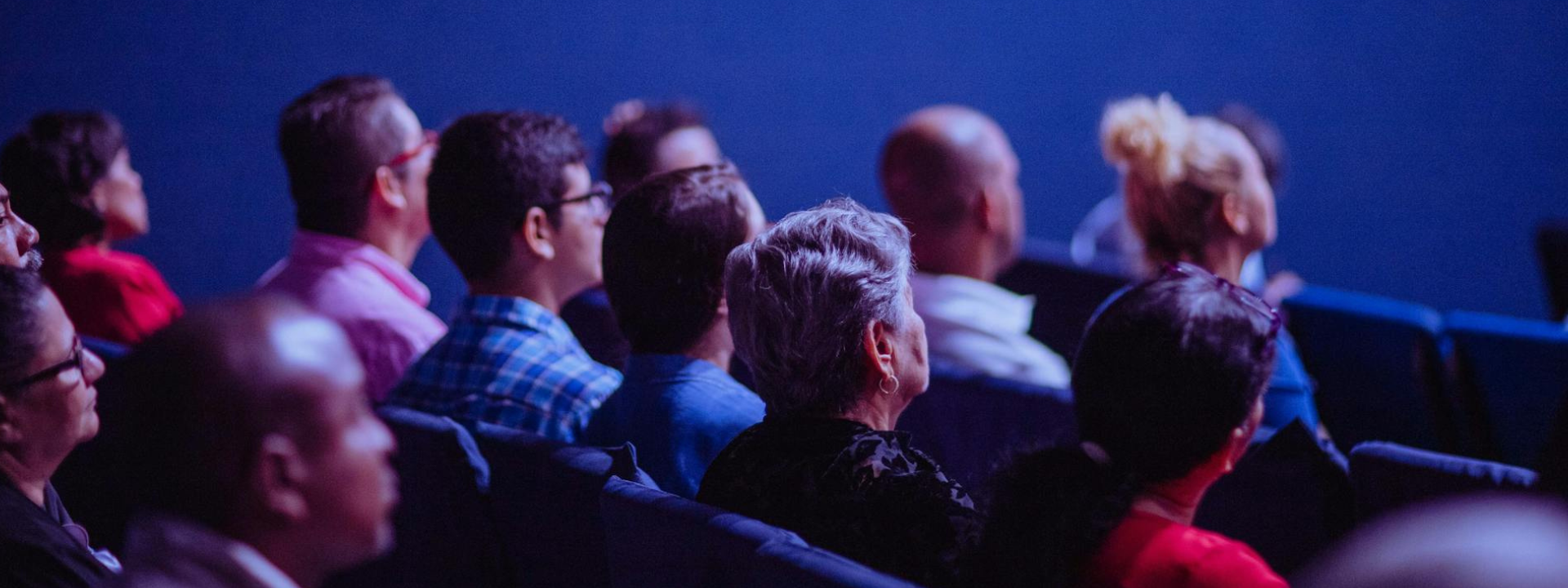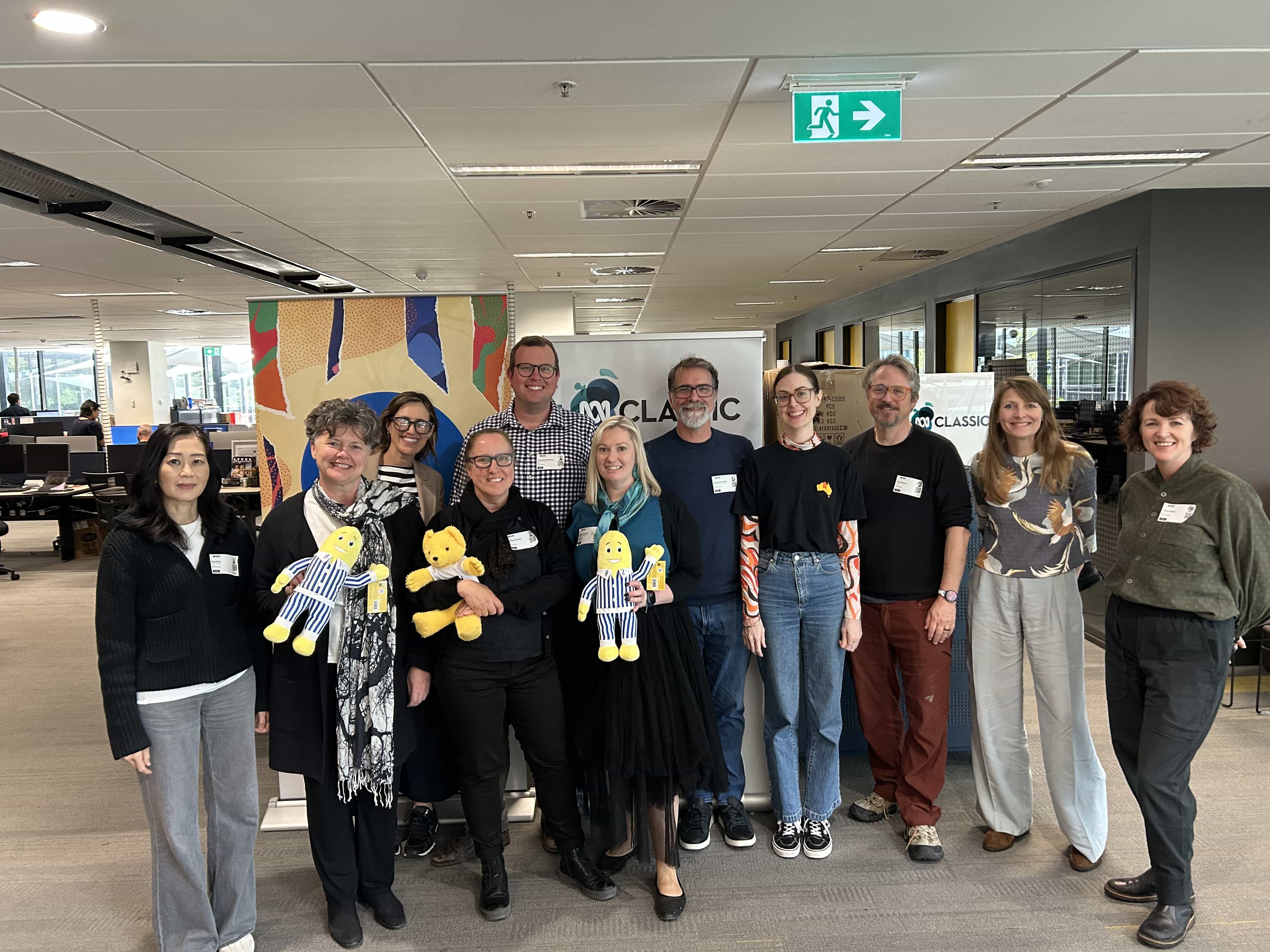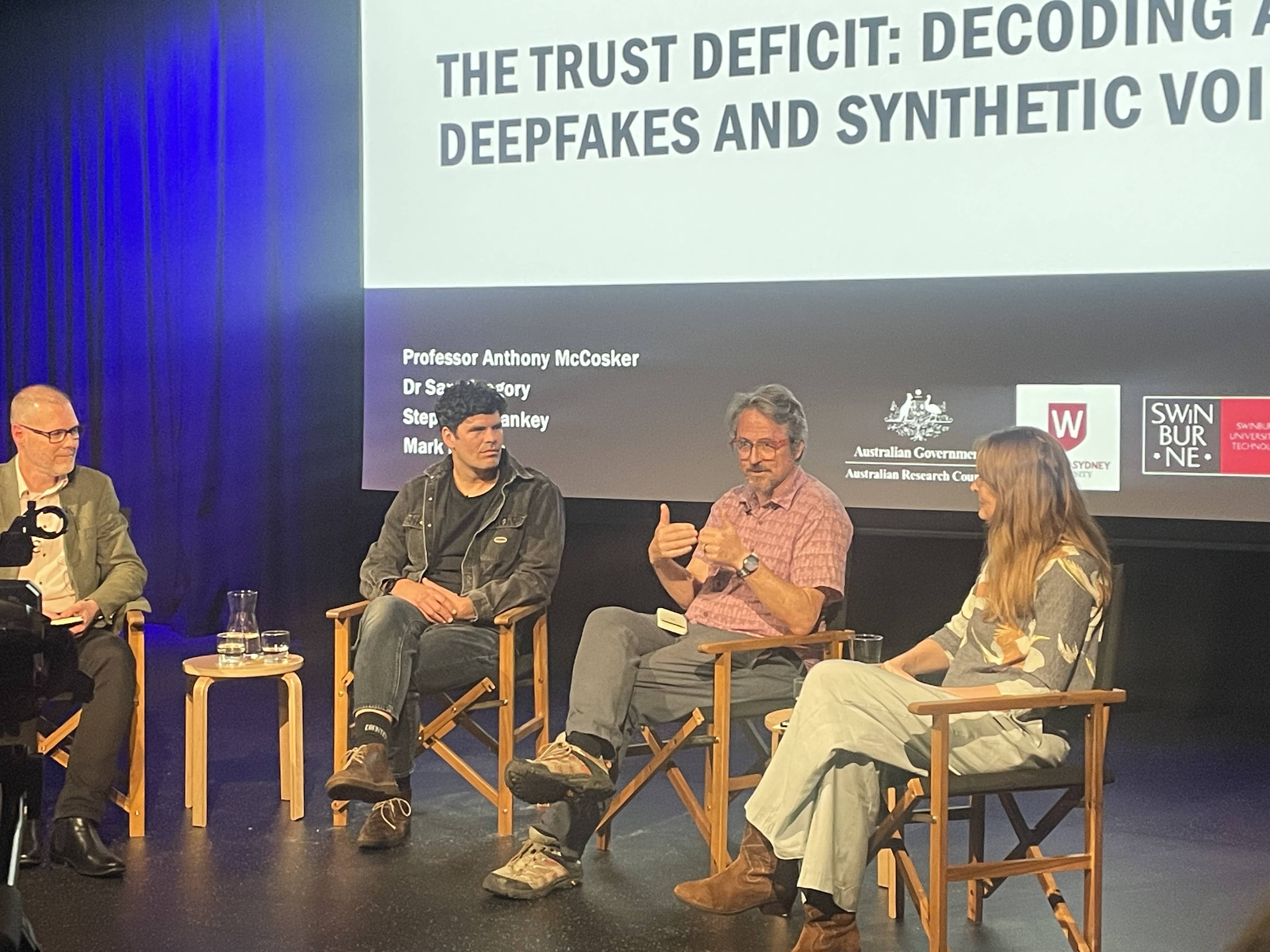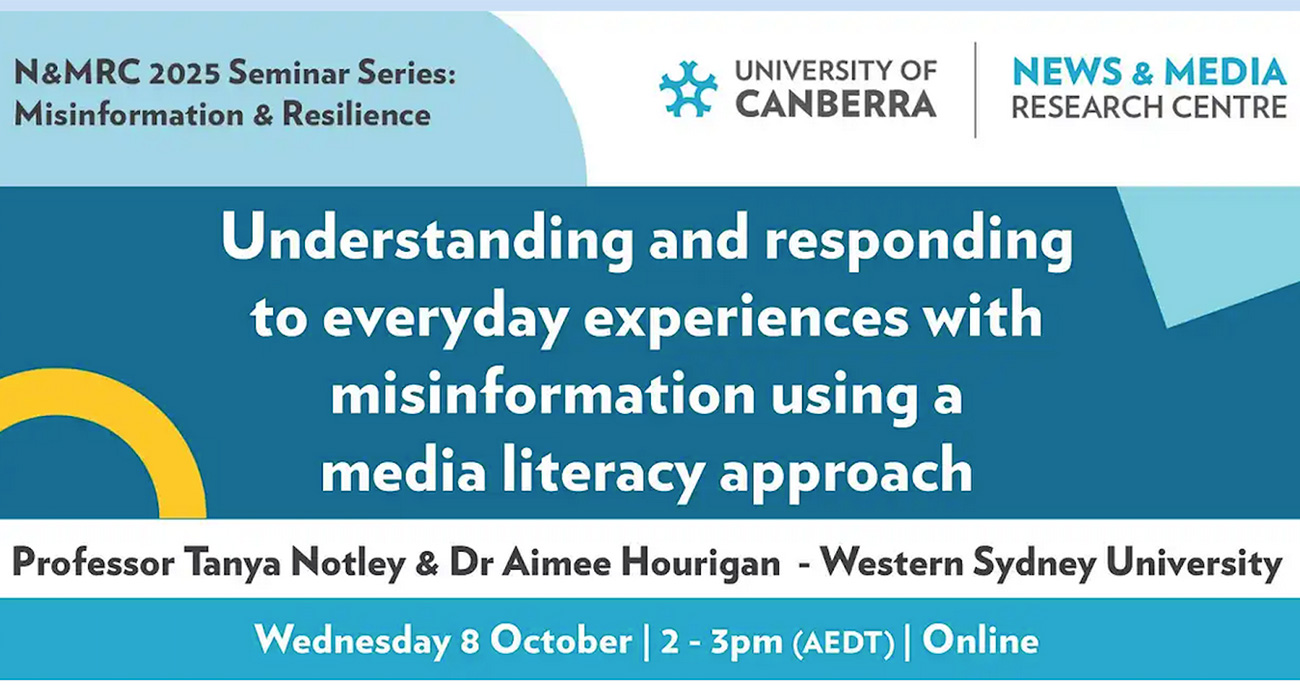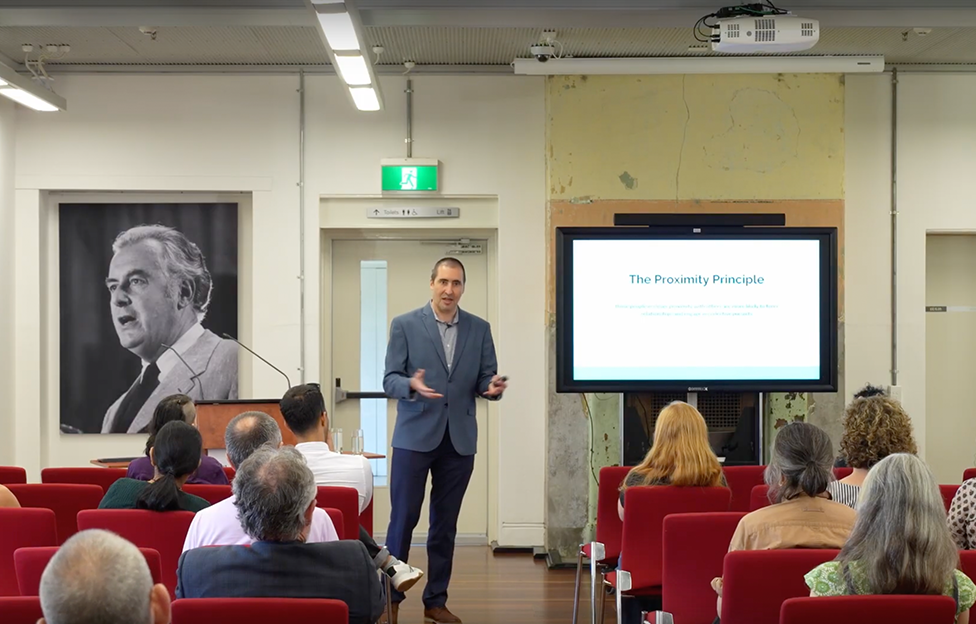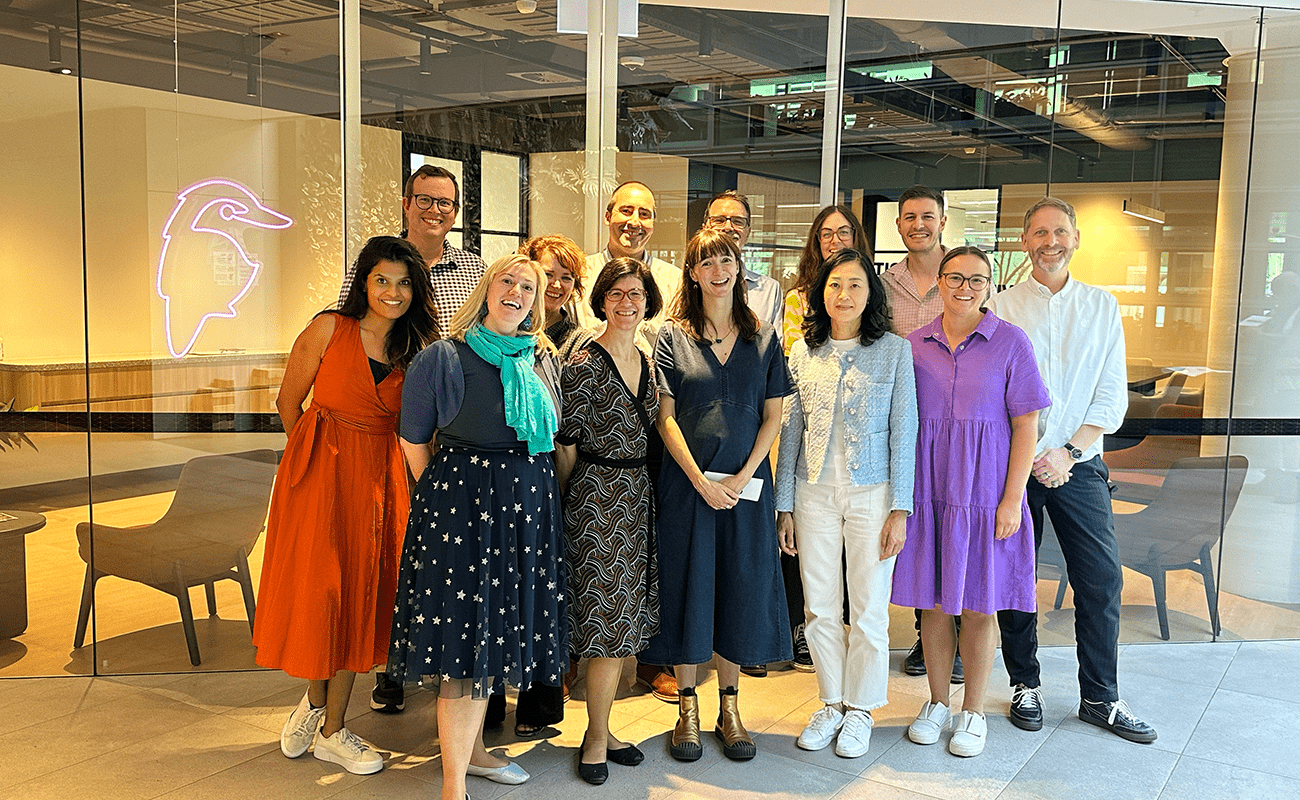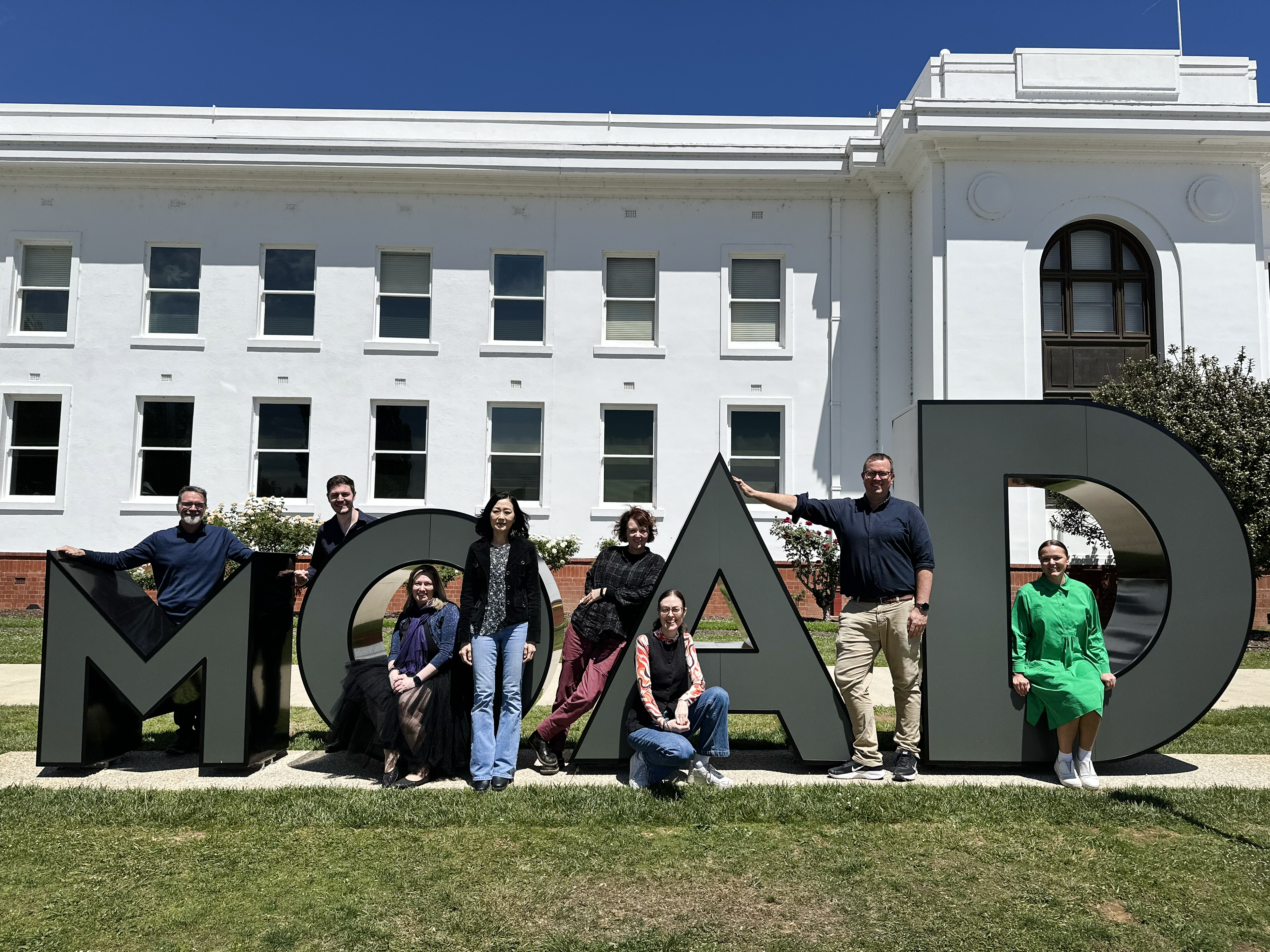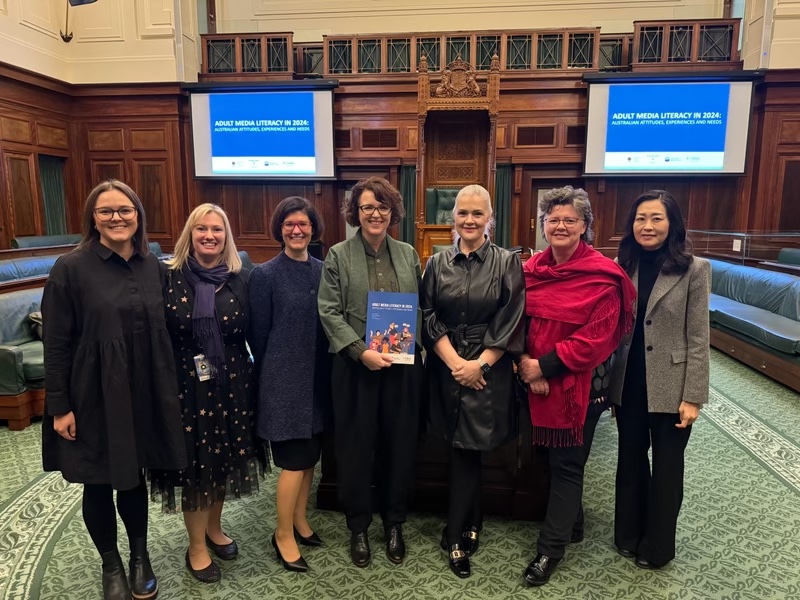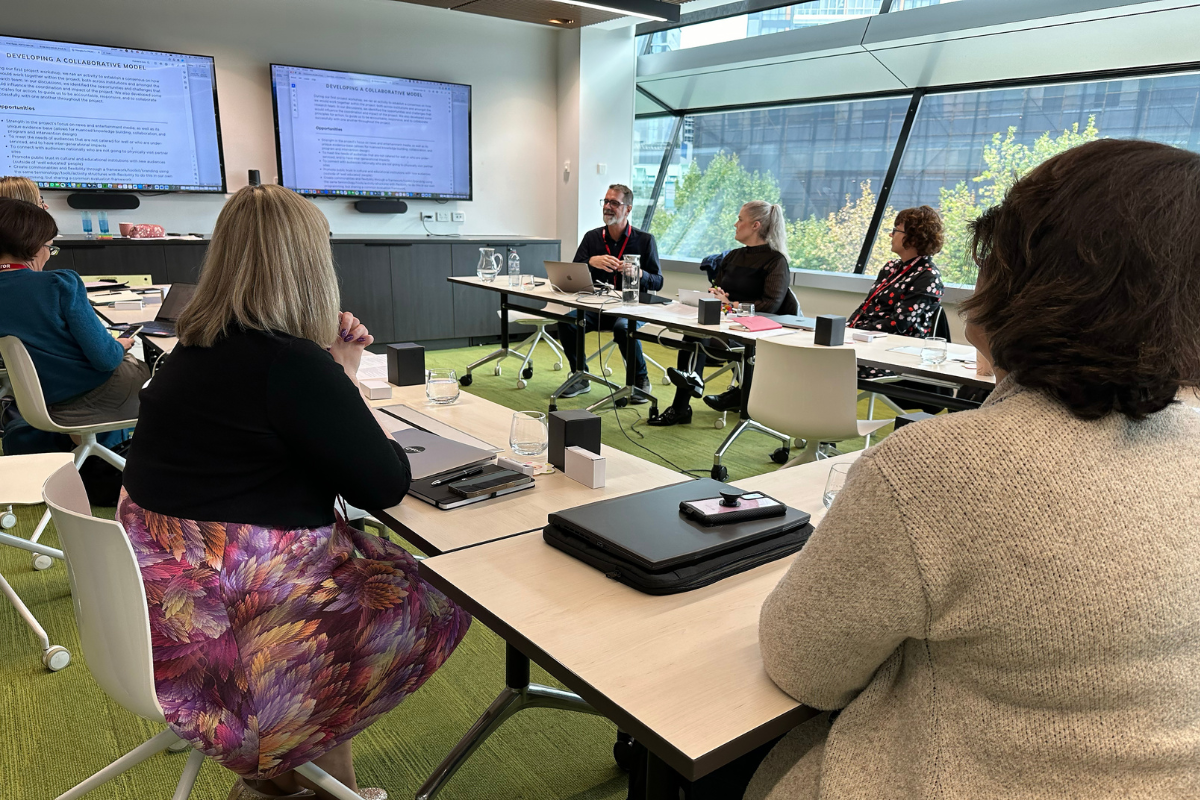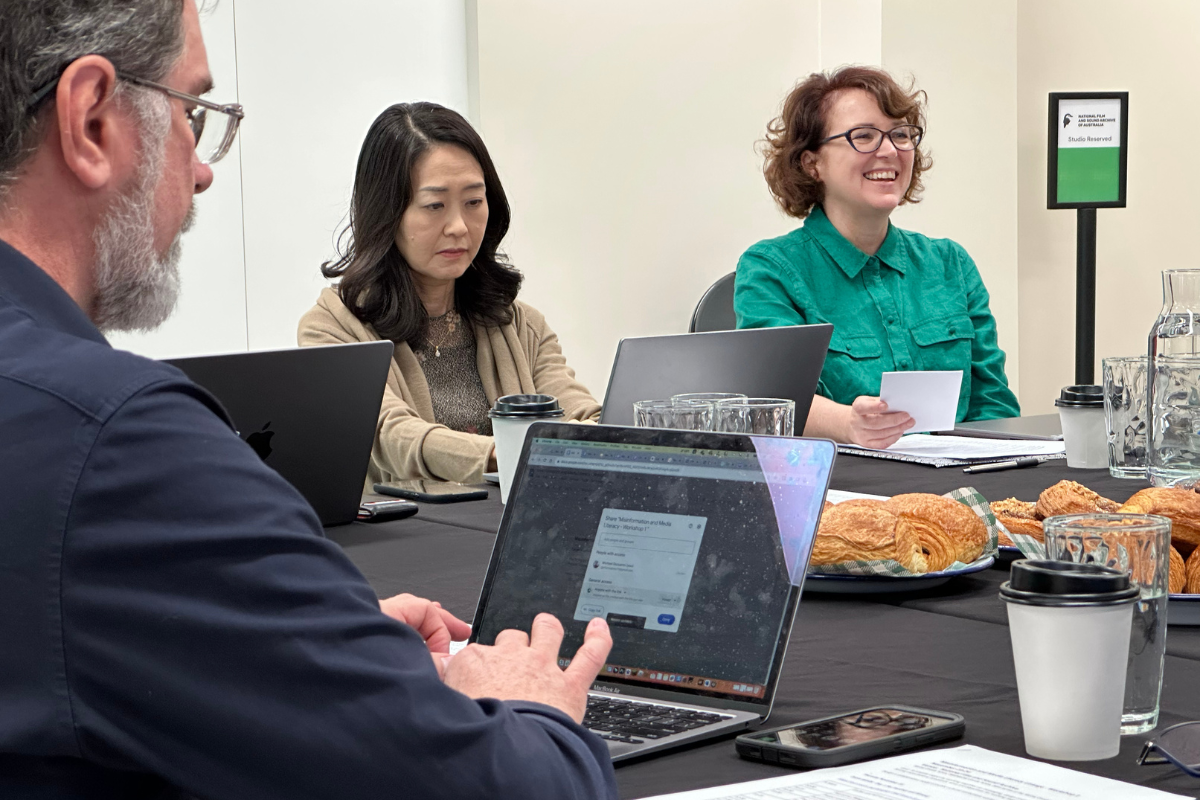You can search for courses, events, people, and anything else.
© Luis Quintero
Evidence-Informed Learning Design Workshop 5
Held 5-6 November 2025 @ ABC Southbank, Melbourne
In the penultimate learning design workshop, the project team came together to reflect on insights from the implementation of the partner organisation’s pilot projects.
The group also gained new critical insight from two international project advisors: Stephanie Hankey (co-founder and executive director of Tactical Tech, Berlin) and Sam Gregory (executive director of WITNESS, New York). Sam helped the group think through the complexities of the ‘slopocene’ and how this challenges people’s experiences of misinformation, as deepfakes and generative AI content becomes increasingly pervasive on social media. Stephanie challenged the group’s thinking about the kinds of resources that will be useful and resonate with Australian groups and organisations who are working to help their communities to be informed and to spot scams and avoid manipulation.
These conversations helped the group map out plans for a guidebook, to give guidance on how community intermediaries can support people in communities across Australia to navigate misinformation online.
The Trust Deficit: Decoding AI Deepfakes and Synthetic Voices
Held 6 November 2025 @ ACMI, Melbourne
This sold-out panel brought together three international experts in media literacy, journalism and conflict reporting to discuss the possibilities and perils at the heart of AI-driven communication. Stephanie Hankey (Tactical Tech), Sam Gregory (WITNESS) and Mark Doman (ABC) reflected on topics such as deepfakes during climate disasters and voice cloning of politicians, to unpack the complexities of truth and trust when media is so easy to fake.
'The recording of this event is now available to watch via the ADM+S YouTube.
The panel was facilitated in partnership with the ARC Centre of Excellence for Automated Decision Making and Society (ADM+S) and Swinburne University of Technology.
Understanding and responding to everyday experiences with misinformation using a media literacy approach
Held 8 October 2025 @ University of Canberra News & Media Research Centre (Online)
Online spaces are often experienced as fast-paced environments that present people with an overwhelming amount of information. However, most scholarly research about misinformation is removed from the complex reality of people’s everyday online experiences. So, how can media literacy initiatives be designed to help people identify, avoid and respond to misinformation? In this free online webinar, Professor Tanya Notley and Dr Aimee Hourigan shared findings from this national research project, which has used multiple research methods to explore this question.
Delivered as part of the University of Canberra’s New and Media Research Centre’s Misinformation and Resilience Seminar Series.
Restoring Civic Health in a Culture of Distance
Held 20 March 2025 @ Institute for Culture and Society, Western Sydney University
In this engaging academic talk, project advisor Professor Paul Mihailidis explores the social challenges presented by our heavily mediated lives. He asks how we can move to restore civic health through media initiatives that prioritise restorative principles of proximity, care and agency. He argues:
- Digitally mediated environments provide opportunities for connection while atomising people and creating distance
- This often happens because technologies are used by us to fill relational voids
- Extractive globa media environments challenge local media infrastructures and increase civic cynicism
- While digitally-mediated environments support people to care about things-we are losing our ability to care for things.
To address these challenges, Paul asks: what does it mean to recenter proximity, civic engagement and belonging in our digitally mediated lives?
Evidence-Informed Learning Design Workshop 4
Held 17-18 March 2025 @ National Film and Sound Archive, Sydney
In the fourth evidence-informed learning design workshop, the project team and partner organisations met in Sydney to further discuss and plan the design and implementation of the partner organisations’ media literacy initiatives. Through a series of discussions and collaborative activities, the group reflected on ways to impactfully ground the initiatives in the project’s research findings. These discussions allowed the partners to consider how they could tangibly align their initiatives with the needs and desires of adult Australians, whilst also ensuring there was clear coordination and cohesion amongst the different organisations’ plans. During the workshop, the group also heard from visiting scholar and international project advisor Professor Paul Mihailidis (Emerson College, United States), who gave an engaging presentation on the potentially transformative link between media literacy and civic engagement.
Online Misinformation in Australia Report Launch
Held 3 December 2024 @ University of Canberra News & Media Research Centre (Online)
People increasingly rely on online sources to get information that informs their decision-making. However, as we highlighted during our recent launch of the Online Misinformation in Australia report, there is a significant gap between adult Australians’ self-reported ability to verify information online and their actual ability. With more than 200 registrations for the event, our launch highlights the increasing importance of the need to identify and understand the challenges and opportunities associated with addressing the problem of misinformation in Australia.
Evidence-Informed Learning Design Workshop 3
Held 23-24 October 2024 @ Museum of Australian Democracy,
Canberra
The need for strong, collaborative, and targeted media literacy initiatives continues to grow in Australia. In the third project workshop, the project team came together to explore and synthesise key takeaways from the project’s four interconnected phases of research and to more concretely plan for how these insights could inform the creation of the partner organisations’ tailored media literacy responses. These insights were reinforced by international advisor Alison Head, founder and director of Project Information Literacy, who gave a detailed presentation about how American audiences, such as college students, encounter, process and respond to climate change information. The workshop also coincided with Media Literacy Week 2024, during which several of the partner organisations also delivered information sessions and hands-on activities to teachers, students, and other audiences across Australia.
Adult Media Literacy Survey 2024 Report Launch
Held 19 August 2024 @ Museum of Australian Democracy, Canberra
In mid-August, more than 150 people attended the launch of the Australian Adult Media Literacy Survey 2024 report. The event was hosted online and in person in the House of Representatives at Old Parliament House.
The report was launched by Senator David Pocock, who stated:
“We’ve seen where misinformation takes hold, it can spread like wildfire, and I think this report really highlights, yet again, the need for a strategy, as a country, when it comes to media literacy. This is something that people want, it’s something that people know that we need…I’m really hopeful that this [research] will add to the calls from many in the Parliament, in academia and from Australians calling for more action on this really important issue.”
The report is based on a survey of a representative sample of 3853 Australians. The study reveals that Australians have a low level of confidence in their media abilities and want media literacy support to be available to all citizens.
Evidence-Informed Learning Design Workshop 2
Held 10-11 April 2024 @ ABC Southbank, Melbourne
In the second evidence-informed learning design workshop, the project team and partner organisations delved into some of the initial findings emerging through the project. This included a discussion of preliminary findings from the 2024 Adult Media Literacy Survey. The group then engaged in some design and speculative thinking activities to build upon these initial findings and to map opportunities, challenges, responses, and pathways for partnership and collaboration to address the misinformation and media literacy needs of possible target audiences. The group also heard from one of the project’s international advisers, Joel Breakstone, who spoke about the development process and some of the key outcomes and learnings from the Civic Online Reasoning project. To end, the group explored possibilities and initial thoughts relating to the organisational or programmatic responses the partner organisations would look to collaboratively develop and deliver as part of the project.
Evidence-Informed Learning Design Workshop 1
Held 23-24 November 2023 @ National Film & Sound Archive, Canberra
For two days in November 2023, several members of the project team and representatives from each of the project partner organisations gathered together in Canberra (and online) for the first bi-annual evidence-informed learning design workshop. As a core project component, the workshops ensure that the initiatives and outreach strategies developed by the partner organisations and project team are informed by the best evidence available, and are driven by the interests of key target groups and their everyday social and cultural practices. During this workshop, the project team and partners engaged in discussion to set expectations, processes, aims and objectives for working together. In particular, the group designed a collaborative model to guide how the partners, as public cultural institutions, could work together to share knowledge and resources, partner on possible media literacy strategies and responses, and amplify impact by ensuring consistency in messaging, design, and delivery.

